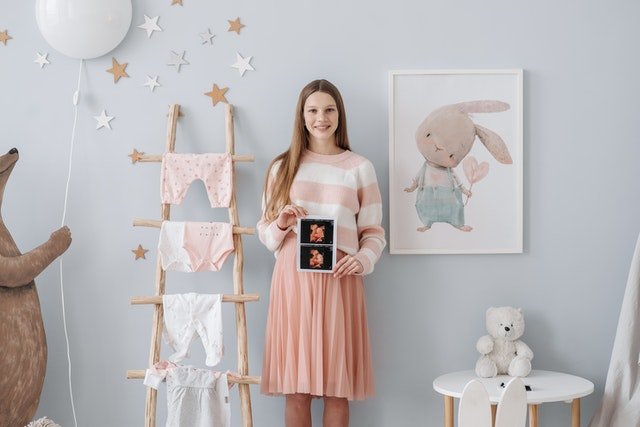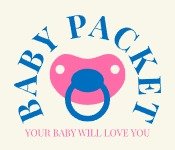
In recent years, there has been a noticeable shift among parents toward choosing non-toxic, organic, and chemical-free baby products. This growing trend reflects a broader societal awareness about the potential dangers posed by synthetic chemicals and toxins present in everyday items. From diapers to lotions and even baby furniture, parents today are more informed and cautious than ever before about the ingredients and materials they expose their babies to. But what is driving this movement toward non-toxic products, and why are parents willing to invest more for organic, eco-friendly alternatives?
The Growing Concern Over Toxic Chemicals
The modern world is filled with chemicals, many of which are hidden in products we use daily. Baby products, in particular, have historically contained a range of harmful substances like phthalates, parabens, BPA (Bisphenol A), and synthetic fragrances. These chemicals can potentially cause skin irritations, disrupt hormonal balance, and even contribute to long-term health problems like respiratory issues or developmental delays.
For example, BPA, commonly found in plastic bottles and packaging, has been linked to endocrine disruption. Phthalates and parabens, often found in skincare products, can mimic hormones and interfere with the body’s natural processes. Even baby powders have come under scrutiny, with some talcum-based products being associated with respiratory risks and contamination concerns.
This heightened awareness of the potential health risks posed by chemical-laden products has led parents to question the safety of the items they use for their children, creating a strong demand for safer, non-toxic alternatives.
Why Organic and Non-Toxic Products Are Safer
Organic and non-toxic baby products are made with natural ingredients and materials that are free from synthetic chemicals, pesticides, and additives. These products often go through more rigorous testing and certification processes to ensure their safety and purity. For example, organic cotton used in baby clothes and bedding is grown without the use of pesticides or harsh chemicals, reducing the risk of skin irritations and allergic reactions.
Skincare products labeled as non-toxic or organic typically use plant-based ingredients such as shea butter, aloe vera, and coconut oil, which are gentle on a baby’s delicate skin. These products also avoid synthetic fragrances, dyes, and preservatives that can cause irritation or even more serious health issues in the long run.
For baby food, organic options are grown without the use of genetically modified organisms (GMOs) or chemical fertilizers, ensuring that the baby’s developing digestive system is not exposed to potentially harmful substances. Organic baby formulas, for instance, are free from synthetic hormones, antibiotics, and artificial additives, offering parents peace of mind about what they’re feeding their children.
The Role of Eco-Friendly Practices
Parents are not just concerned about the immediate health impacts of baby products but also their long-term effects on the planet. Non-toxic and organic products are often part of a larger eco-conscious lifestyle that prioritizes sustainability and environmental stewardship. Eco-friendly baby products, such as biodegradable diapers and sustainably sourced toys, help reduce the environmental footprint of childcare.
Many non-toxic baby products are designed with both the baby’s health and the planet in mind. For instance, bamboo-based diapers are biodegradable, compostable, and made without the harsh chemicals used in conventional disposable diapers, which take hundreds of years to break down in landfills. Similarly, non-toxic baby wipes made from organic cotton or bamboo avoid harmful preservatives and artificial fragrances, making them gentler on both the baby’s skin and the environment.
The Push for Transparency and Certification
In response to growing consumer demand, more brands are now committing to transparency about their ingredients and manufacturing processes. Certifications such as USDA Organic, OEKO-TEX Standard 100, and EWG Verified (Environmental Working Group) provide parents with assurance that the products they’re buying meet strict safety and environmental standards. These certifications have become essential for parents who want to make informed choices about what they bring into their homes.
However, navigating product labels can still be challenging. Terms like “natural” and “eco-friendly” are not always regulated and can sometimes be used misleadingly. This is why many parents have started to rely on third-party certifications and trusted sources to verify that the products they buy are genuinely free from harmful chemicals.
Long-Term Benefits of Non-Toxic Baby Products
While non-toxic and organic baby products tend to be more expensive than their conventional counterparts, many parents see them as a worthwhile investment in their child’s health and well-being. Babies are especially vulnerable to environmental toxins due to their developing bodies and immune systems. Reducing their exposure to harmful substances during these early years can help prevent potential health issues, from skin irritations to more serious, long-term conditions.
Moreover, many parents report a sense of reassurance knowing that the products they use are safe, both for their child and for the environment. The peace of mind that comes from knowing your baby is not being exposed to potentially harmful chemicals is often worth the higher cost of organic and non-toxic products.
Conclusion
The switch to non-toxic, organic baby products is more than just a trend—it reflects a deeper understanding of the health risks associated with chemical exposure and a desire to provide the safest possible environment for newborns and infants. As awareness grows, more parents are choosing products that prioritize both the immediate well-being of their babies and the future of the planet. Whether it’s organic cotton baby clothes, BPA-free bottles, or eco-friendly diapers, non-toxic baby products offer peace of mind in a world where safety can often be uncertain. For many parents, the benefits far outweigh the cost, making this shift toward organic and chemical-free baby care a growing movement that’s here to stay.
